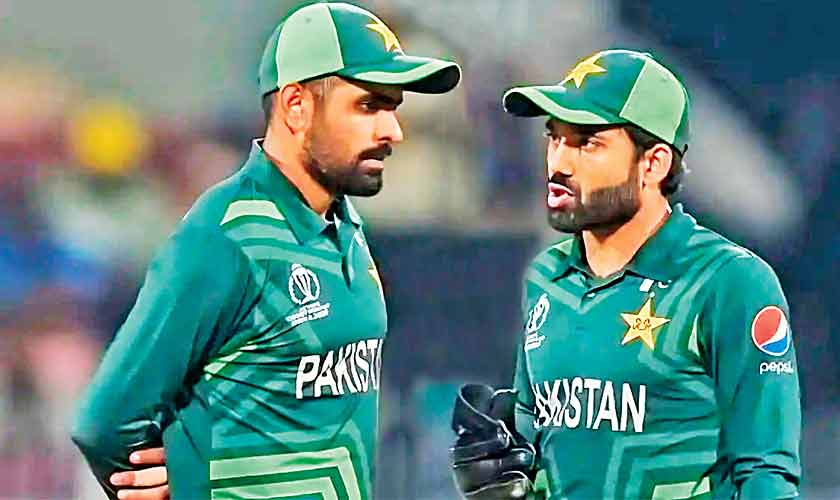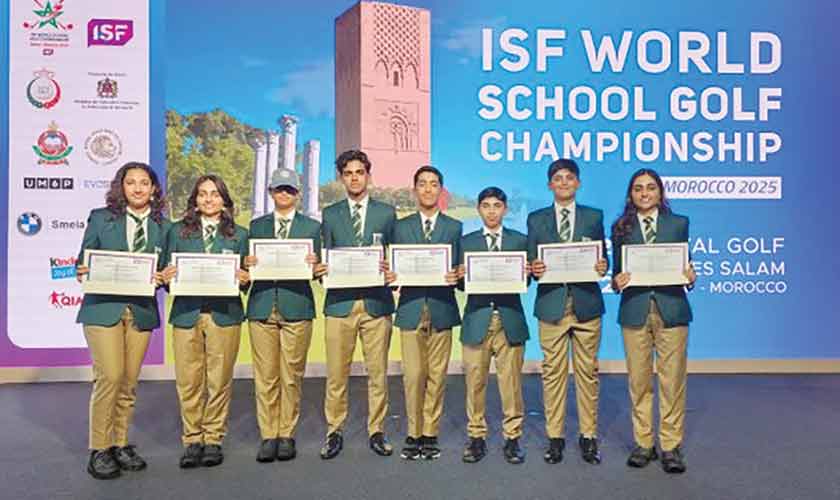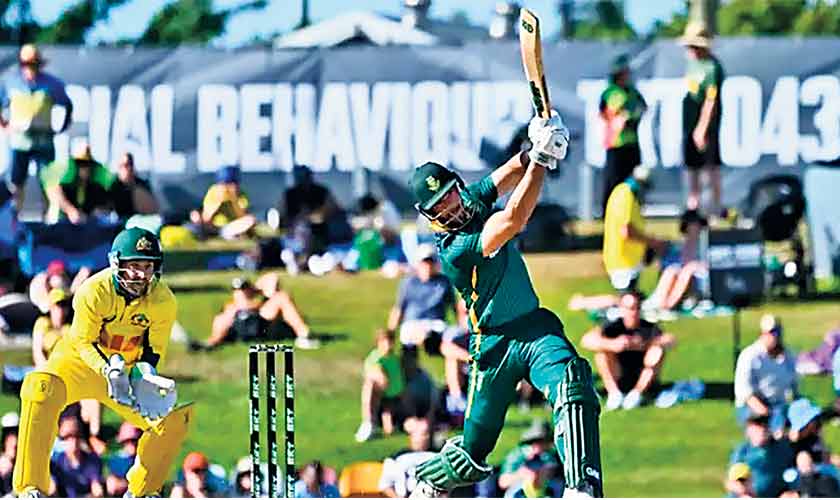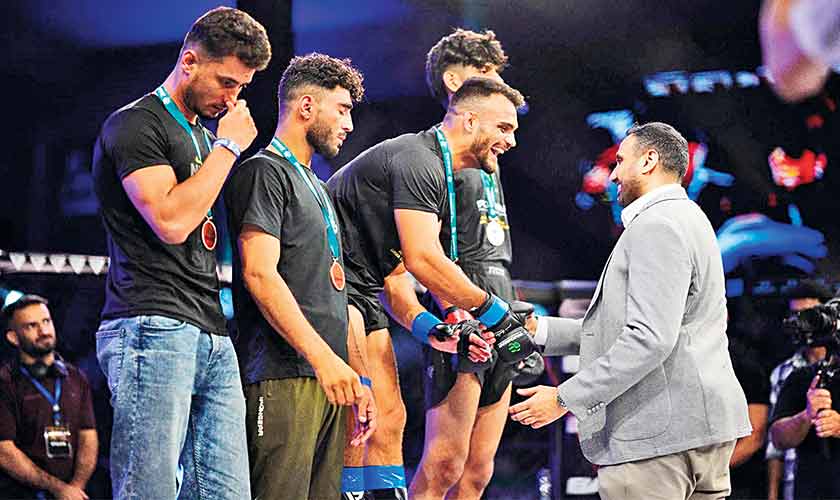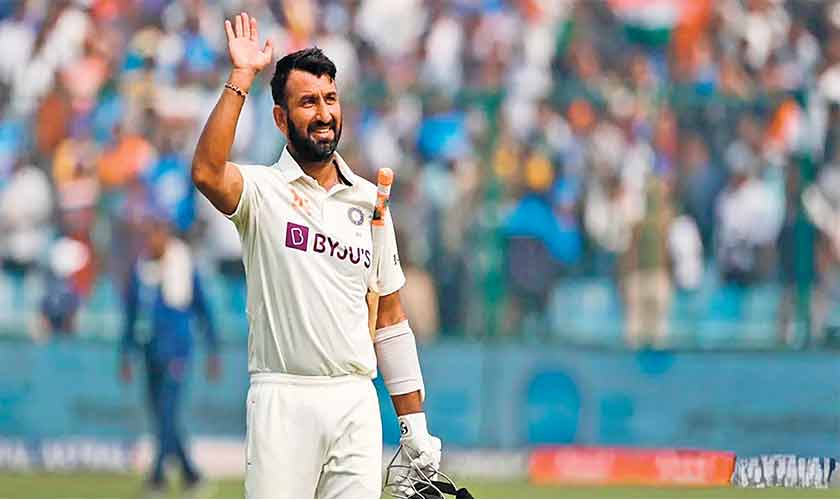Pakistan has announced its 17-member squad for the upcoming Asia Cup in the UAE, with Salman Agha appointed captain. The same squad will also feature in a tri-series against Afghanistan and the UAE as preparation for the continental tournament.
The most notable omission is of veteran batters Babar Azam and Mohammad Rizwan, who were not considered for selection. Fakhar Zaman, meanwhile, has recovered from the hamstring injury he sustained in the West Indies and has been recalled.
Head coach Mike Hesson described the exclusion of Babar as “a tough decision,” acknowledging the right-hander’s stature but underlining the need for improvement.
“Babar has been informed of the selectors’ decision. The team requires him to enhance his strike rate and strengthen his game against spin,” Hesson said.
He further suggested that opportunities such as the Big Bash League could allow the former captain to showcase progress in those areas.
Babar last featured in T20Is in December 2024. In PSL 2025, he accumulated 288 runs in 10 innings for Peshawar Zalmi, including scores of 94, 56* and 53*, but his overall strike rate stood at 128.57. In Pakistan’s recent ODI series against the West Indies, he managed scores of 47, 0 and 9.
The decision comes in the aftermath of Pakistan’s early elimination from the 2024 T20 World Cup, which followed their humbling defeat in the 2022 final. Statistics underline the concern: since 2020, Pakistan’s top three batters have faced nearly three-quarters of the team’s deliveries-the highest proportion among full-member nations. In this period, Babar and Rizwan have recorded power-play strike rates of just 116 and 117.40, well below the modern T20 benchmark where anything under 130 is considered below par.
In contrast, the next generation has been producing standout performances. Hasan Nawaz struck the fastest T20I century by a Pakistani-off 44 balls-and averaged 57 with a strike rate of 162 in PSL 2025. Sahibzada Farhan, meanwhile, has emerged as Pakistan’s most prolific six-hitter this year, posting monumental scores of 112*, 162* and 148 during the National T20 Cup, while also earning three Player of the Match awards in just six international outings.
Pakistan’s batting order has frequently collapsed when the Babar-Rizwan partnership failed early, exposing a conservative and fragile middle order. Previous reliance on players like Khushdil Shah and Mohammad Nawaz yielded limited success, particularly evident against England in 2022.
The Asia Cup 2025 now provides Pakistan with the platform to experiment with a refreshed squad while keeping an eye on the 2026 T20 World Cup. Far from being a rash gamble, the move is backed by compelling data and reflects a long-overdue shift in Pakistan’s T20 strategy.
Pakistan head coach Mike Hesson has defended the squad chosen for the upcoming Asia Cup, describing it as a “highly competitive” mix of experienced players and promising new talent.
According to reports, the four-member selection committee – comprising Aaqib Javed, Azhar Ali, Asad Shafiq and Aleem Dar – had initially proposed a pool of 20 players.
While Babar Azam was included in that list, Hesson exercised his contractual authority to finalise the squad of 17, opting to exclude both Babar and Mohammad Rizwan.
The decision was based on recent form. Both players were closely monitored during Pakistan’s three-match ODI series against the West Indies – Hesson’s first assignment since taking charge in May.
Babar managed scores of 50, 0 and 9, while Rizwan returned 53, 16 and 0. Sources indicated that their cautious approach, low strike rates and high number of dot balls failed to convince the coach of their readiness for a T20 comeback.
“Babar has been asked to improve in certain areas, particularly against spin and in terms of his strike rate,” Hesson said. “He is working hard on those aspects, but right now the players in the squad have performed exceptionally well.” He added that Babar still has opportunities to prove himself in other competitions.
Hesson has consistently emphasized that selection will be based on current form rather than reputation. For Babar, recent statistics paint a concerning picture. In ODIs, he has not scored a century in 29 innings since September 2023, with his average falling from 54 to 36. In T20Is, his last century came in April 2023, and since then he has averaged just 31.5 over 25 innings, well below his career mark of 40.
The omission of both Babar and Rizwan signals a significant shift, with insiders suggesting the pair are now unlikely to feature in Pakistan’s T20 World Cup campaign in February 2026, which will be co-hosted by India and Sri Lanka.
Director of the High-Performance Centre, Aaqib Javed, endorsed the final selection, expressing confidence in the chosen squad. “These 17 players are capable of beating any side, including India,” he said. Looking ahead to the high-profile Pakistan-India clash on September 14 in the Asia Cup, Javed added, “I am hopeful this team can overcome India.”
Shaheen Afridi, who had also found himself out of favour in T20 cricket of late, retained his place for the tri-series and the Asia Cup, though Naseem Shah missed out once again as he also failed to cement his place in the Asia Cup squad due to his inconsistent performance.
Lahore Qalandars fast bowler Salman Mirza, who was Pakistan’s leading wicket-taker with eight against Bangladesh in the away T20I series, was included in the side. Ahmed Daniyal, who also impressed briefly, though was not part of the squad. Both specialist wrist-spinners – Abrar Ahmed and Sufiyan Muqeem, kept their place.
The squad is something of an amalgamation of the sides that have played T20I cricket under Hesson in the three T20I series over the summer. The recent ODI series – which Pakistan lost 2-1 in the Caribbean – appears not to have influenced decision making either way.
Hesson said he intended to stick to the aggressive top-heavy approach he has championed in the format, and repeated that Pakistan’s game was suited to such a style.
“We were challenged with three different surfaces in each of the three series,” Hesson said. In Lahore, the surfaces were flat and the batting excelled. We went to Bangladesh where they were incredibly challenging and low-scoring games. Our top order sets the game up. All the games we won the top order performed really well. The third game in the West Indies, our openers put on 140 [138]. We need that at a run- rate that gets us ahead of the game. T20 is all about setting the game up and being ahead of the game all the time in case you get yourself out. From a batting point of view “We have got a line-up that can continue to do that”.
The tri-series in the UAE between the hosts, Afghanistan and Pakistan will serve as a warm-up to the T20 Asia Cup, which will begin on September 9.
It will be an opportunity for the selected players and the selectors to test players’ skills on the similar conditions for the Asia Cup. Pakistan have never won the T20 version of that tournament; they reached the final when it was last played in 2022.
In another development, the Pakistan Cricket Board (PCB) has announced a significant reshuffle in its central contracts for the 2025-26 season, surprisingly, not awarding any player the prestigious category A designation. Last season, only Babar Azam and Mohammad Rizwan held category A status; however, both have now been demoted to category B.
Pakistan’s Test captain Shan Masood, previously in category B, has been further
relegated to category D. The reshuffle results in ten players in each tier, expanding the total number of centrally contracted players from 27 to 30. Fakhar Zaman, who missed out on a central contract for the first time in eight years in 2024 amid disciplinary proceedings, has been reinstated in category B.
The decision to withhold any players from the highest category has been officially attributed to performance concerns. An internal PCB communication indicated that no player’s recent performances warranted a category A contract, with promotion to this level contingent upon consistent and justified impact. Both Babar Azam and Rizwan, along with the overall Pakistan team, experienced relatively underwhelming seasons across formats in the past year.
khurrams87@yahoo.com

